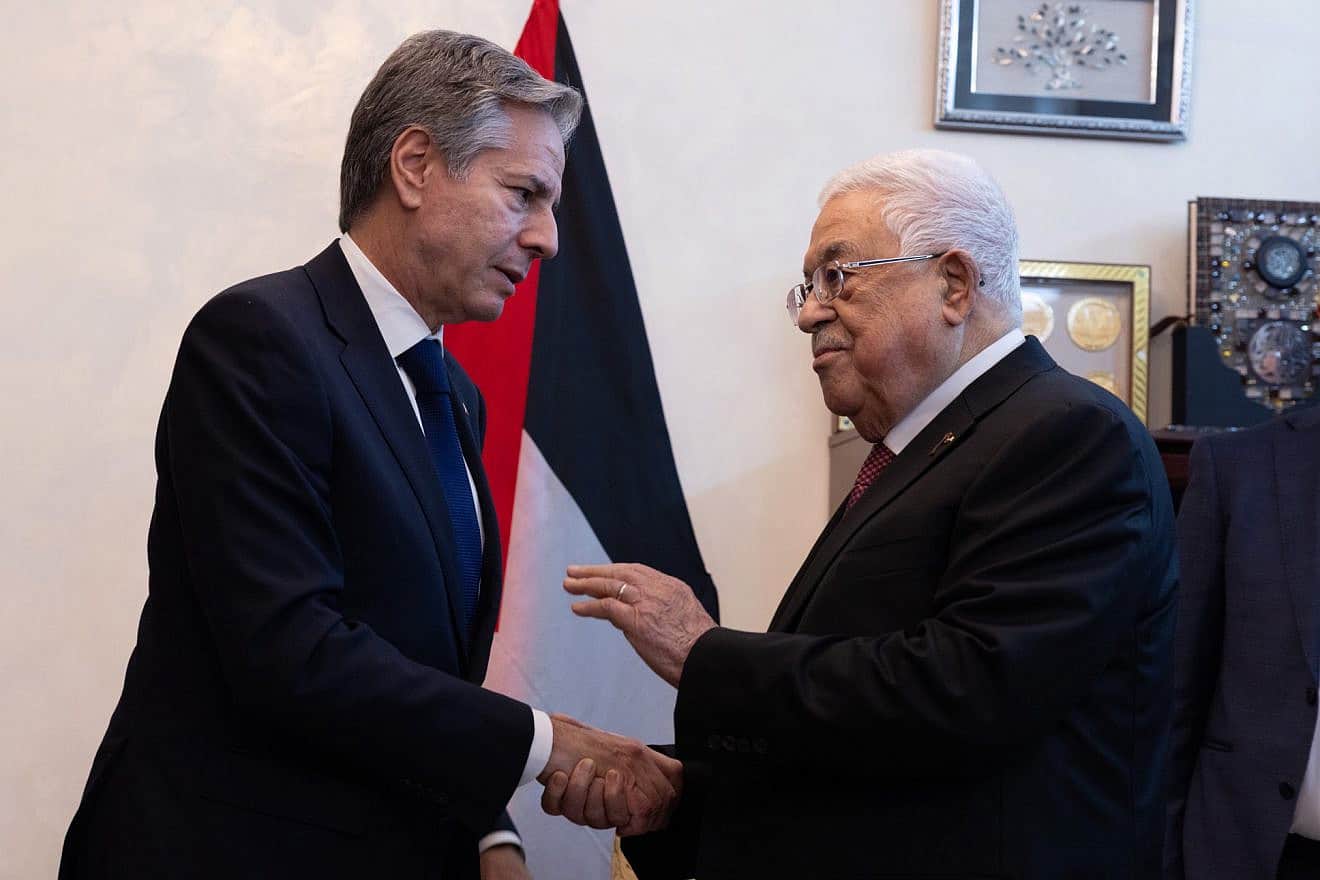An Israel-Hamas ceasefire in Gaza will take place in three stages over several weeks, sources in the Palestinian Authority and Fatah claim.
Parallel to this, Palestinian Authority chief Mahmoud Abbas is said to be preparing certain reforms under U.S. pressure that he hopes would allow him to return to power in Gaza.
The emerging ceasefire agreement will occur in three phases, according to the high-ranking sources and reports in the Saudi-owned Al Arabiya news channel.
The basic formula is the release of one Israeli hostage for 30 imprisoned terrorists for each day of the ceasefire. That amounts to 35-40 hostages being released in exchange for Israel commuting the sentences of 1,200 Palestinian terrorists over approximately six weeks.
In addition, Israeli forces would withdraw from positions in Gaza cities, but not from the entire Strip as Hamas has been demanding.
Hamas insists that women and children hostages be released in the first stage, then men and soldiers in the second stage. The final stage will see the release of the bodies of dead captives.
Palestinians would not be permitted to return to homes in northern Gaza, but Israel would allow a U.N. delegation to prepare the area for that eventuality.
Gaza’s new ‘Civil Administration’
According to Al Arabiya sources, during the ceasefire’s first stage, Israel, Egypt, Qatar and the U.S. would discuss a civil administration for Gaza to replace Hamas. The character of this new civil administration is not clear, but high-level P.A. and Fatah sources said the Biden administration is pressuring the Palestinian Authority to reform itself so it can return to running the Strip.
The P.A’.s official position is that it does not want to return to Gaza or take responsibility for its reconstruction unless it is part of an agreement leading to statehood. Israel opposes the P.A.’s return to Gaza.
Sources in Ramallah said Abbas intends to reform the P.A. by cutting back on bloated and inefficient bureaucracy, replacing diplomats representing the PLO abroad and initiating an internal self-investigation mechanism within the Palestinian Preventive Security Service. The U.S. would have access to the internal investigations, sources also said.
In addition, the U.S. demands that the P.A. stop its incitement against Israel and remove inflammatory textbooks from the Palestinian curriculum.
After implementing these measures, the P.A. would supposedly be poised to take over Gaza.
However, nobody in Ramallah believes Abbas will see the reforms through. A November survey by the Palestinian Center for Policy and Survey Research found that 90% of the Palestinians living in Judea and Samaria wanted Abbas to resign, while 60% said the Palestinian Authority is ineffective and should be dissolved.
Moreover, 64% of the respondents said they were opposed to the P.A. participating in meetings with the U.S. or Arab states about Gaza’s post-war future. When asked who should run Gaza after the war, 60% said Hamas, 16% said a national unity government without Abbas, and 7% said the P.A. with Abbas.
Palestinians have not held national elections since 2005 and Abbas is now in the 19th year of what was supposed to be a four-year term. Since then, Abbas has canceled several attempted elections amid Fatah-Hamas disagreements, most recently in 2021.
Sources in Ramallah also said that the Palestinian Authority would invite “soft core” members of Hamas to be part of the new civil administration, something that Israel would surely oppose.























